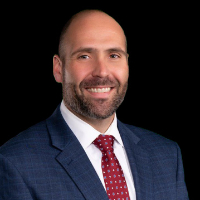 Cottageville Misdemeanor Lawyers, South Carolina
Cottageville Misdemeanor Lawyers, South Carolina
Sponsored Law Firm
-
 x
x

Click For More Info:
-
Clekis Law Firm P.A.
171 Church St, Charleston, SC 29401» view mapCriminal Defense Law Clekis Cares. We Listen to You.
Clekis Law Firm has been representing clients for over three decades.
800-725-6591
Not enough matches for Cottageville Misdemeanor lawyer.
Below are all Cottageville Criminal lawyers.
Sponsored Lawyers
1-4 of 4 matches
Criminal, DUI-DWI, Felony
Chad was born and raised in St. Charles, Missouri just outside of St. Louis. He attended undergrad at Valparaiso University in Northwest Indiana and graduated in 2004 with a political science major. Chad then moved to Charleston, South Carolina in 2004 and attended the Charleston School of Law. He was part of the first graduating class and received his juris doctor degree in 2007. He was soon admitted to the South Carolina Bar and to the United States District Court for the District of South Carolina. After law school, in 2007, Chad joined the Berkeley County Public Defender’s office. He worked for nine years at the public defender’s office. Chad worked thousands of cases ranging from drug offenses, traffic violations to armed robbery and murder. He is well seasoned at going to trial and fighting hard for his clients. He obtained numerous not guilty verdicts at trial including Criminal sexual conduct, armed robberies and assaults. Even before trial, he got an attempted murder case dismissed at a preliminary hearing. He works diligently to get the best outcome for his client by evaluating risk. In 2015, Chad graduated from the National criminal defense college in Macon, Georgia. In 2016, He opened the doors to his own law office. In private practice, Chad was able to successfully get a dismissal on a Murder charge, Assault and Battery by a Mob, while also getting a not guilty verdict on an Armed Robbery. Being in private practice allowed Chad to expand his criminal representation to the magistrate and municipal level. While in magistrate court Chad has over a dozen not guilty verdicts at trial and nearly a hundred cases dismissed prior to trial. In 2019 and 2020, Chad was named as a top 100 criminal defense attorneys by the National Trial Lawyers Association. In addition to a member of the National Trial Lawyers Association, Chad is a member of the National Association of Criminal Defense Lawyers, South Carolina Association of Criminal Defense Lawyers, Berkeley County Bar Association and Dorchester County Bar Association. Chad is also a member of the Business Networking International Lowcountry Business Professional’s chapter, where he previously served as the Vice-President and is currently the Member Mentor for the chapter. Chad lives in Charleston with his wife, Whitney, two children, Brian and James and two stepchildren, Erica and Chase. He sat on the board of his wife’s nonprofit organization Chase After a Cure who raises money for childhood cancer research. In addition, he has participated in Scouting as a Leader for his boys dens. He has sponsored and coached numerous youth baseball leagues. Chad was on the church counsel at St. Luke’s Lutheran church and serves as a commissioner for the Summerville Church Softball League.
(more)


 Nicholas Clekis Charleston, SC
Nicholas Clekis Charleston, SC

